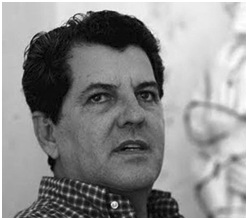I’ve been thinking about how we were domesticated… and how they could domesticate us again. Part IV
Exaggeration and Distortion
We often use the term “hysterical” to refer to people with a theatrical personality. They are the kind who “make a storm in a teacup,” turn something trivial into a drama, or take what we say out of context. In politics, this is what Goebbels defined as the “Principle of Exaggeration and Distortion.”
How is this principle defined?
It consists in turning any simple event into a serious threat or a sign of danger—exaggerating its importance dramatically, distorting what it really is, so that this dramatic reaction impacts the masses and creates in them fear, indignation, or emotional adherence, as desired.
How have we experienced this principle on our island?
To begin with, for years we had in Fidel Castro who was a histrionic leader: his gestures, his tone of voice, his ability to transform any event either into a triumph or into a threat was well known.
Thus, for example, any comment coming from the United States was enough to unleash paranoia about an “imminent invasion”—an argument that was the basis for countless “marches of the combatant people,” and even that collective hysteria of “building shelters” for when the bombings arrived… which, of course, never did.
The case of the boy Elián was another example—an obviously won battle, since it was clear that if Elián had lost his mother, custody belonged to his father. But it was not handled calmly. The Elián case marked the beginning of the “open tribunes,” where “the people demanded that imperialism return a son,” when in reality there was no need for such mobilization, nor did the “unleashed indignation of our people” have the slightest influence on the U.S. judicial system.
A similar case was that of the so-called “five heroes,” a topic that mobilized hundreds of people and consumed rivers of fuel, even though it was never our shouting that secured the return of the five spies, but rather quiet and persistent negotiation at another level.
Examples of the application of this mechanism are countless, because it is a principle that turns any criticism into a threat, any legitimate complaint into an improper challenge to authority.
It happened with the disproportionate reaction to the bishops’ pastoral letter “Love Hopes All Things,” which serenely pointed out the country’s difficulties and respectfully invited a dialogued search for solutions.
It happened with the relentless harassment of Oswaldo Payá and his “Varela Project,” which, based on the Constitution itself, called for a national referendum involving all Cubans.

It happens every time someone goes out with a sign, writes their discontent on a wall, forms an opposition group, or goes out to claim their rights…
They are all portrayed as “instruments of imperialism,” misguided beings without free will, a accused of being paid by foreigners to destroy national sovereignty.
Seen this way, they are denied the right to have their ideas debated, because they are nothing more than an enemy to be fought. All this serves to present the government as “a heroic regime defending its people from an evil empire,” trying to make people not see it for what it really is: an oppressive regime that keeps its people in misery—not even for ideological reasons anymore, but for pure personal gain.
Comments powered by CComment